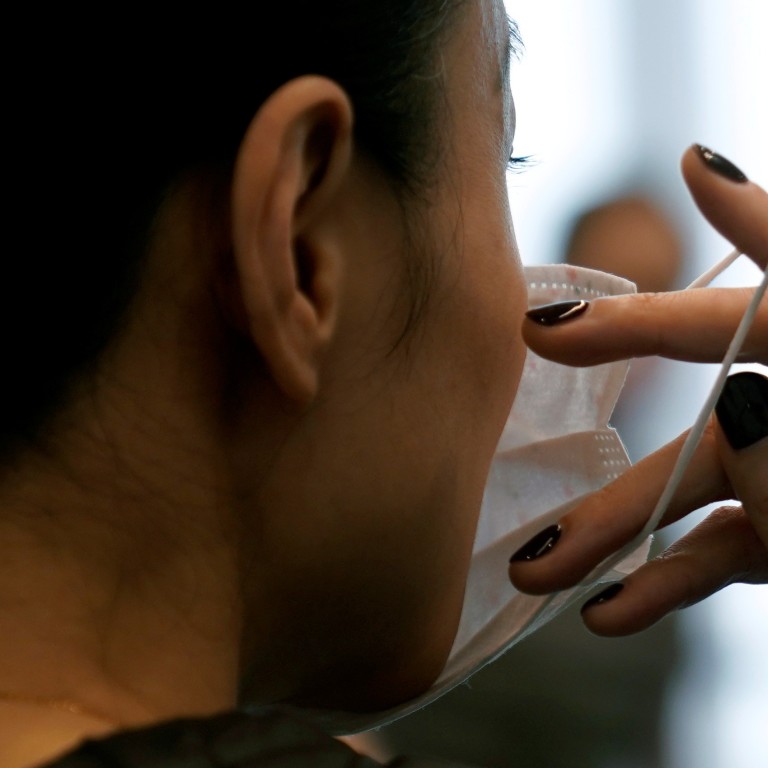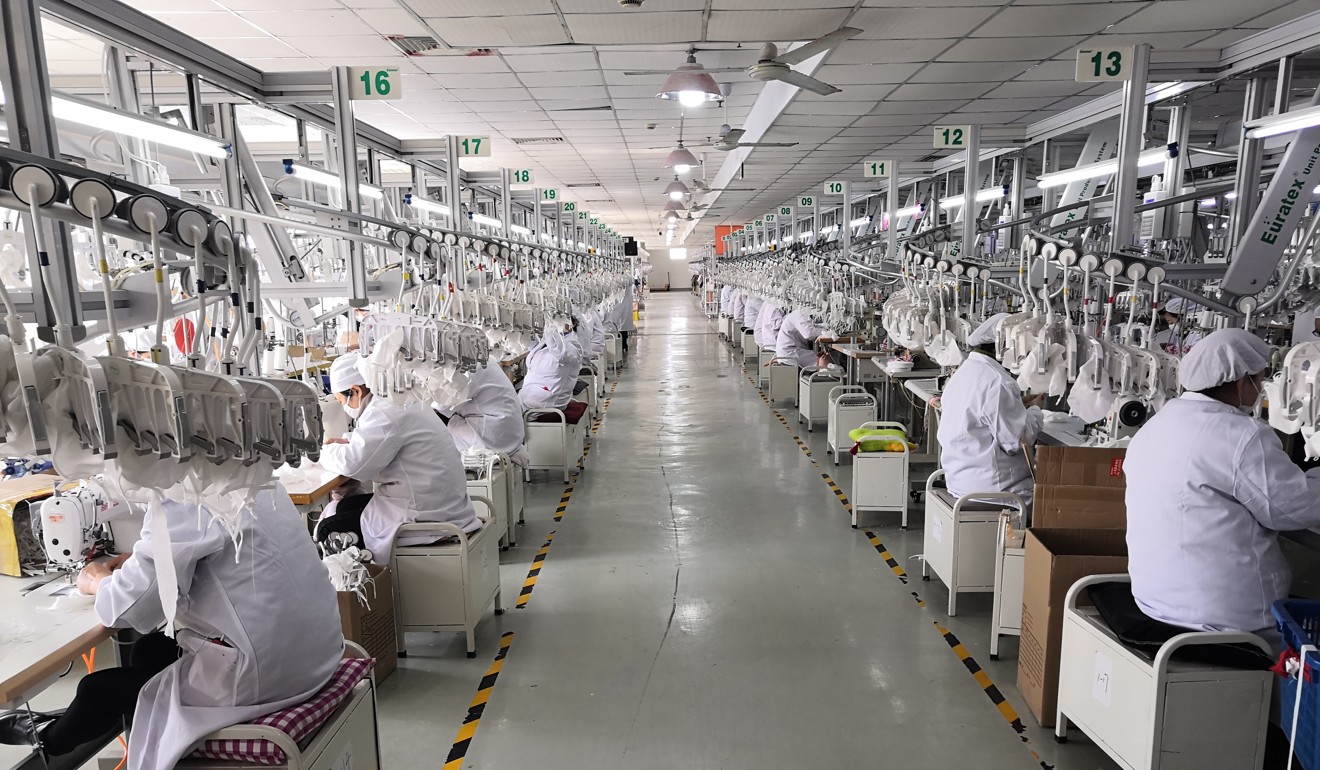
Shanghai companies begin production of face masks that can be reused up to 10 times
- The new KN95 masks, which are not yet for sale, are said to have high air permeability and to be waterproof
- Manufacturers say the mask can maintain its filtering ability after being disinfected multiple times
Two Shanghai companies are jointly producing recyclable face masks, the first of their kind in China, the municipal government has announced.
Shanghai Economic and Information Technology Committee said the new KN95 masks, which adopt nanotechnology, can be reused up to 10 times after disinfection. The factories are now making 100,000 masks per day, and output is expected to reach 300,000 per day on Friday. They will be priced at 15 to 25 yuan (US$2.14 to $3.56).
The committee said it has provided guidance as the mask has been developed, including design, production and sales. Manufacturing is being done by Shanghai Juchen Infant and Children Garment Company and Shanghai Hanpu New Material Hi-tech Company, both located in the Qingpu district.
It is not clear when the reusable masks will be available for sale. The Xinmin Evening News reported that besides the portion allocated by the government, the remainder will be sold on Pinduoduo, a mainland e-commerce platform.
The authority has pushed the manufacturers to turn out recyclable masks since there has been a shortage of melt-blown nonwovens and nonwoven cloth, the raw materials for disposable masks, it said.
The new mask, the brand name of which is unclear, follows the KN95 standard, which is similar to the certifications for the American N95 and European FFP2. This means each mask can filter 95 per cent of particles with a mass median diameter of 0.3 micrometers.
Neither of the production facilities could be reached by phone on Monday.
Wuhan doctors battle outbreak in nappies as masks rub their faces raw
According to the Shanghai authority, the masks have high air permeability and are waterproof. Those wearing one for a long time won’t feel their mouth turn moist, the authority said.
Inside the mask is a thin nanofiber membrane that can filter 95 per cent of particles as small as 0.075 micrometers in diameter. The coronavirus is about 0.1 micrometers in diameter.
The manufacturers found that the mask could maintain its filtering ability for 20 uses after being cleaned with boiling water, alcohol or 84 disinfectant liquid, although they recommend that wearers use it no more than 10 times.
The mask’s filtering ability can last for 200 hours, more than 20 times that of normal disposable masks.
“Some key indexes [of our mask] reach the standard of medical use,” Bei Shiwei, general manager of Juchen company told the Xinmin Evening News. “But the masks for medical use should undergo asepsis processing, while our company’s production environment does not meet that requirement. Therefore, our masks will be sold to ordinary citizens rather than medical staff.”
Since the Shanghai authority announced the recyclable masks on Sunday, thousands of people have commented online, most asking when and where they can buy them.
The committee said the production capacity was growing gradually, with a bottleneck caused by a shortage of workers to sewing the masks and a limited supply of nanometre materials. The authority said it was coordinating the supplying of raw materials and offering financial aid to the Juchen company to add more packing machines.

Charles Wang, an advanced material professor from a Beijing-based university, said that theoretically, nanofiber can filter the coronavirus because the material can be seen as mini-sized activated carbon.
“It’s also not a problem for nanofiber to be recycled,” he said. “The key in producing a mask is to make sure that the both sides can cover up the face closely, without any cracks in between.”
Wang said the mask’s projected price was “too cheap compared with its cost”.
“I think even if it is sold at 50 yuan, many people will buy it,” he said.
Gao Xiaodong, an infection specialist from Shanghai Zhongshan Hospital, reminded people to be vigilant when taking off the mask and washing or disinfecting it because virus particles might remain stuck to it.
Purchase the China AI Report 2020 brought to you by SCMP Research and enjoy a 20% discount (original price US$400). This 60-page all new intelligence report gives you first-hand insights and analysis into the latest industry developments and intelligence about China AI. Get exclusive access to our webinars for continuous learning, and interact with China AI executives in live Q&A. Offer valid until 31 March 2020.

